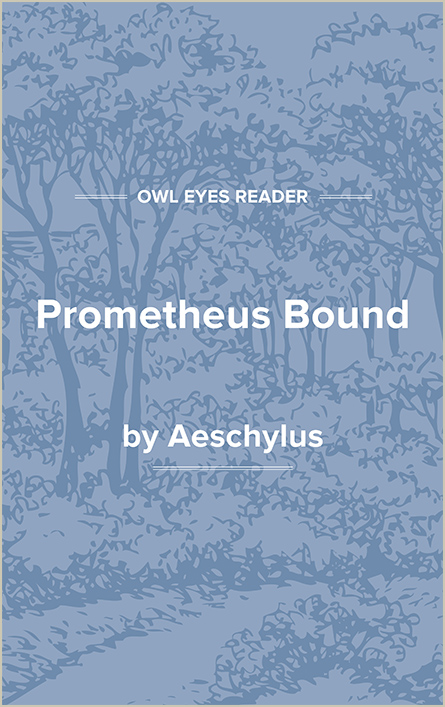Study Guide
Summary
Prometheus Bound was the first work in a trilogy that also included the plays Prometheus Lyomenos (Prometheus Unbound) and Prometheus Pyrphoros (Prometheus the Fire-Bearer), neither of which has survived. Since the final two dramas of the trilogy have been lost, it is difficult to determine Aeschylus’s original intention for the work as a whole. This problem is intensified since the date of the trilogy is unknown. A reference (lines 363-372) to the eruption of Mount Aetna in 479 suggests that Prometheus Bound may date later than this event. Aside from that, however, scholars cannot agree whether the play was written early or late in Aeschylus’s career or even whether it is a genuine work of Aeschylus.
The theme of Prometheus Bound is the conflict between force and justice. The supreme god Zeus has recently assumed control of the universe from the Titans and is ruling like a petty tyrant. He has bound Prometheus to a rock in a remote corner of the earth because Prometheus gave the gift of fire to humankind, a race whom Zeus had sought to destroy. To the original Athenian audience, which had expelled the tyrant Hippias only in 510 b.c.e., Aeschylus’s references to tyranny in this play would have been topical. Moreover, it is surprising to find that these references are applied to the god Zeus, usually depicted in Aeschylean tragedy as the defender of justice and the patron of civil law.
The reason for the strange image of Zeus in this play was probably made clear in parts of the trilogy now lost. Justice, in Greek society, was frequently seen as a balance or a sense of proportion among conflicting demands. In the Prometheus Bound , Zeus, early in his reign, has not yet attained that balance. As the trilogy progressed, a sense of proportion must have been found between Zeus’s excessive desire for order and Prometheus’s extreme desire to benefit humankind. (Indeed, Prometheus is described as bestowing honors upon mortals “beyond what was just,” at line...
(The entire page is 506 words.)
Owl Eyes subscribers get unlimited access to our expert annotations, analyses, and study guides on your favorite texts. Master the classics for less than $5/month!

